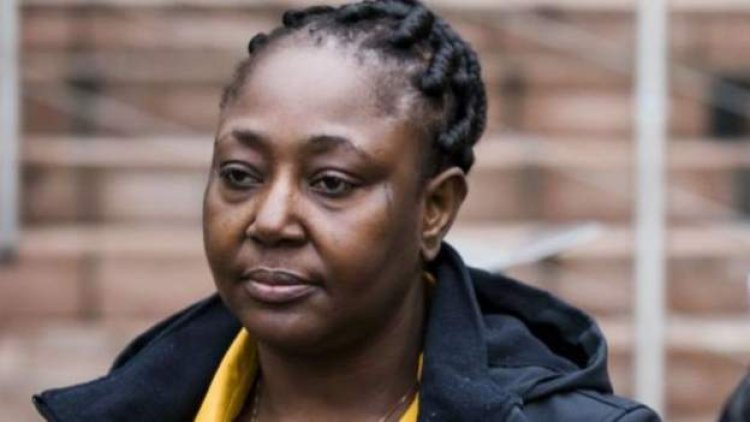Nigerian widows lose their case against Shell for execution.
Victoria Bera and Esther Kioble, two of the widows, were in court for the decision, according to BBC's Anna Holligan in The Hague

In their lawsuit against oil corporation Shell over their husbands' executions by Nigeria's military regime in 1995, a Dutch court found against four Nigerian widows.
The men were part of a group of nine activists who were peacefully protesting pollution caused by oil leaks in the Niger Delta's Ogoniland. Author Ken Saro-Wiwa was the most well-known of them all.
They were dubbed the "Ogoni Nine" and killed after a secret tribunal found them guilty of murdering four traditional leaders. They disputed the charge, claiming they were falsely accused.

Esther Kiobel said she was glad that at least her testimony had been heard
The widows' claim that Shell was involved in buying witnesses whose testimony was crucial to their conviction was dismissed by judges in The Hague, who found there was insufficient evidence to back their claim.
Victoria Bera and Esther Kioble, two of the widows, were in court for the decision, according to BBC's Anna Holligan in The Hague.
They'd sat in the front row for over three decades, hoping for justice.
Ms. Kioble told the BBC outside the courtroom that she was pleased that her voice had been heard. In 2019, she testified in court about how her husband's death had left her traumatized.

Ken Saro-Wiwa (pictured) was among nine activists executed by the military government in 1995
She told Reuters that she planned to file an appeal: "I'd like to see their identities cleared. That's what I'm after, and I'm battling for it."
Ms. Bera stated that she would continue to fight against oil contamination on behalf of the Ogoni people.
Shell paid the families of the slain men more than $15 million (£11.4 million) in 2009 without admitting any culpability.

 Boakyewaa Lawrencia
Boakyewaa Lawrencia 



































